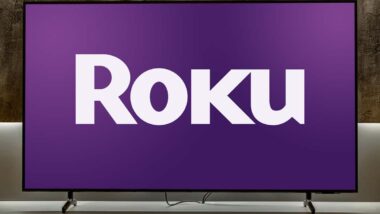Top Class Actions’s website and social media posts use affiliate links. If you make a purchase using such links, we may receive a commission, but it will not result in any additional charges to you. Please review our Affiliate Link Disclosure for more information.
The class action watchdog Center for Class Action Fairness has filed an objection to the Equifax data breach class action settlement, claiming that the attorney fee request should be reduced and that the settling parties suppressed the claims process.
Equifax settled the case in July 2019 in what is considered one of the largest data breaches of personal and financial information in American history.
The objection, filed in Georgia federal court by Ted Frank and David Watkins, states that Class counsel structured the settlement and claims process unfairly which will deter objections and stifle monetary claims.
Frank is the Director of Litigation and Senior Attorney at the Center for Class Action Fairness, which is a part of the Hamilton Lincoln Law Institute.
The objection states that “there are fundamental intraclass conflicts regarding statutory-damages claims that require separate subclassing and separate counsel.”
The Equifax settlement includes a single Class of around 147 million customers whose personal information was stolen due to a data breach in September 2017.
The objection filed by Frank and Watkins states that the court ruled that the plaintiffs would be able to go forward with data breach claims from 25 states, the District of Columbia, Puerto Rico, and the Virgin Islands. In addition, the court stated that the plaintiffs could proceed with claims from consumer protection statutes from 33 states, including the District of Columbia and the Virgin Islands.
“Rule 23(a)(4) requires class members with different statutory claims to be subclassed with separate representation so that a group of class members’ claims are not favored at the expense of another’s,” the objection states.
In addition, the objection notes that Class Members should have representatives and Class attorneys who are not conflicted. Frank says the Equifax settlement involves dozens of different statutes that vary in the amount of available damages.
“Without separate counsel to help press their most compelling case, their respective subgroups could not maximize the litigation values of their statutory claims,” Frank states.
In addition, the court documents state that the requirements for objecting to the settlement are too burdensome and were designed to lower the number of objections that are filed.
First, the settlement requires that any individual who would like to object to the settlement must provide four dates between Nov. 19, 2019 and Dec. 5, 2019 when they would be available to be deposed.
Also, objectors are required to identify all class actions that they have objected to within the past five years.
In addition, Frank argues that Class counsel’s fee request should be reduced and the excess amounts should be returned to the Class. He states that the fee request of 21 percent of the settlement amount is more than twice the average percentage awarded in settlements of this size.
Frank argues that “while the settlement may be the ‘largest data breach settlement in history,’ that is only because of the class size” and not because of the amount of money that each Class Member will receive.
The Equifax data breach settlement initially offered Class Members a choice of either $125 in cash or 10 years of credit monitoring. However, the Federal Trade Commission has warned that due to an “overwhelming” and “unexpected” amount of Class Members filing claims, those choosing the cash option are expected to receive an amount that’s a lot lower than $125.
Do you think the Equifax data breach settlement is fair? Leave a message in the comments section below.
The plaintiffs are represented by co-lead counsel Amy Keller of DiCello Levitt Gutzler LLC, Kenneth Canfield of Doffermyre Shields Canfield & Knowles LLC and Norman Siegel of Stueve Siegel Hanson LLP. Barnes Law Group LLC and Evangelista Worley LLC serve as co-liaison counsel. Cohen Milstein Sellers & Toll PLLC, Girard Gibbs LLP, Hausfeld LLP, Tadler Law LLP, Morgan & Morgan Complex Litigation Group, Murphy Falcon & Murphy and The Doss Firm LLC are on the plaintiffs’ steering committee. Griffin & Strong PC serves as state court coordinating counsel.
The Equifax Data Breach Class Action Lawsuit is In re: Equifax Inc. Customer Data Security Breach Litigation, Case No. 1:17-md-02800, in the U.S. District Court for the Northern District of Georgia.
UPDATE: On Dec. 20, 2019, a federal judge gave a $425 million Equifax class action settlement final approval despite objections from consumer advocacy groups.
ATTORNEY ADVERTISING
Top Class Actions is a Proud Member of the American Bar Association
LEGAL INFORMATION IS NOT LEGAL ADVICE
Top Class Actions Legal Statement
©2008 – 2024 Top Class Actions® LLC
Various Trademarks held by their respective owners
This website is not intended for viewing or usage by European Union citizens.















170 thoughts onEquifax Settlement Faces Objection From Watchdog Group
The amount is surprisingly paltry and is extremely unfair!
Yes, I do think it is unfair, because of the breach there were 4 Identity theft accounts that appeared on my credit reports and two if these accounts were linked to my checking account I have been trying since early 2018 disputing these accounts with all the credit bureaus. I have only been allowed 10 hours yet I have many more hours that that plus out of pocket. Because of this breach I am still disputing and on November 16, 2019 sent certified letters to under FCRA 612 (a). I have had for file several complaints with CFPB and with the financial institution yet all of it has not been removed/blocked.as of yet. Experian and TransUnion I am having trouble with.
add me please
Yes, trust in the company is fading fast
I have already made a request for $125.00 which is truly a lowball offer to victims’ truth be told.
As usual, the individuals responsible for overseeing the breakdown and disbursement are trying desperately to legally find a way to increase their [administrative] take leaving the victims with next to nothing.
Glad the objections have been raised. Hopefully, the final ruling will be fair and just. Claimants deserve it.
I think that Equifax should offer more than $125.They we’re supposed to have a handle on the issue.
Please add me – I have already made a request for payment of $125,00
I believe that the Equifax lawsuit Settlement should be far more amount than $125.00 for what Equifax is offering the customers and consumers this is a slap in the face to all consumers. All Consumers should submit an appeal. I disagree Equifax with the offer.
I feel that the amount i got is wrong. When i stated i paid monthly 39.00 a month for 5 yrs. I get a check for 8.96 this is not enough to even cash here in Alabama. You owe me a bigger check
I made my determination prior to the announcement of the decrease in the dollar amount to be rewarded. There should be a new period to request a choice.
Please include me in this new action.